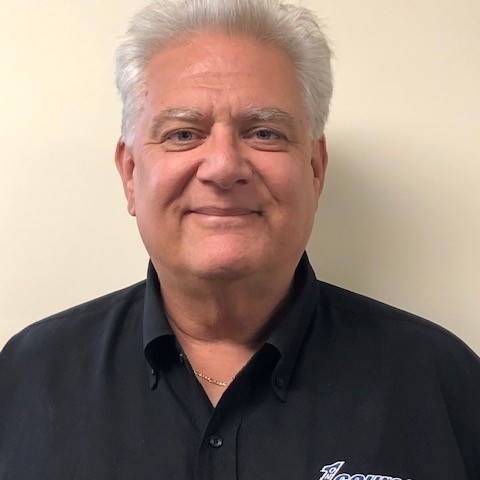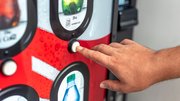Coffee Service
OCS operators strain for signs of improvement
The office customer base has been one of the hardest hit since the lockdowns began for convenience services operators, and comments from several operators interviewed at random indicate these locations will be the slowest to reopen.

June 24, 2020 by Elliot Maras — Editor, Kiosk Marketplace & Vending Times
Coffee service operators have always been forward thinking and upbeat. During the present COVID-19 lockdown, with the majority of accounts closed for three months, those traits have come in handy.
The office customer base has been one of the hardest hit since the lockdowns began for convenience services operators, and comments from several operators interviewed at random indicate these locations will be the slowest to reopen.
The U.S. office vacancy rate rose by 10 basis points in Q1 2020 to 11.5%, according to the Q1 2020 Office Market Outlook from Colliers International, a real estate services company. The office absorption is down by 32% on a year-over-year basis, the service reported, indicating a buyer's market.
The most lasting impact to the office sector resulting from COVID-19 could come from firms reassessing their needs, according to Colliers International. If companies decide business functions can be run through remote working, many may decide not to house as many employees in offices.
Operators cite challenges
 |
| Bob Betz has received requests for touchless equipment. |
"Our whole industry has died just about," Bob Betz, owner of One Source Office Refreshments in Pottstown, Pennsylvania, told Vending Times. "It's going to take a long time for our industry to get back to where it was."
For Betz, the white collar accounts — the dominant OCS customer base — have taken a much bigger hit from COVID-19 than the blue collar ones.
He expects remote working to become more prevalent even after the COVID-19 crisis passes.
Betz's sales bottomed out at 40% of its normal revenue and is now back up to about 50%. "We're hoping by year's end we're back to 70%," he said.
The company dropped from 78 employees to 14, and has since grown back to around 30.
Micro markets will be especially hard for many accounts to sustain since they have minimum revenue requirements, he said. These accounts could choose replace micro markets with vending, which is less profitable for the operator.
Betz is also making lease payments on 11 vehicles that aren't running compared to about 10 that are running.
Customers are asking about touchless coffee dispensers and water filtration systems, he said, but he is hesitant to invest in new equipment under the present circumstances.
In the meantime, Betz has integrated his OCS deliveries with his vending/micro market deliveries on account of the need to condense deliveries. This creates issues with OCS service, as vending/micro market drivers aren't as familiar with OCS.
Bright spot: safety products
 |
| Tom Steuber has found demand for safety related products. |
"Business is really bad," agreed Tom Steuber, president of Concord, California based Associated Services, which has five branches serving northern California. Suburban areas are showing some improvement, but urban high rises are not. He pegs his sales decline at 80%.
"There is a big concentration of business among that type of (urban high rise) client," he said. "We're seeing some improvement, but it's pretty slow."
Steuber has provided customers with safety enhancement products like sand sanitizers and face masks. He has not given any thought to expanding into a different market.
Like Betz, Steuber has gotten requests for touchless equipment, such as the Cafection Evoca solution that allows the client to scan a QR code with their cell phone, giving them access to the exact same drink selection as the machine screen, and the Bevi feature that allows filtered still, sparkling, flavored and enhanced water to be dispensed via smartphones.
"That's something we've been looking at," he said. "People are certainly interested in that type of option."
In the meantime, customers may prefer cartridge based coffee systems to bulk hopper systems due to perceived sanitation, although Steuber has not yet specifically received any requests on this topic.
"I think there's going to be a big push to have people working from home," he said. "People are really concerned. They just don't want to have to go back to these buildings because they're concerned about their health, and they don't feel that they have to."
Despite the problems, customers are not talking about getting rid of coffee. Steuber isn't sure what the future holds, but he believes coffee has always held a special place with consumers.
"I'm optimistic in the long run," he said.
Keeping positive helps
 |
| Justin Kleinman manages to stay positive. |
Office buildings have not yet reopened on the East Coast, said Judson Kleinman, founder and CEO of Corporate Essentials in Parsippany, New Jersey.
Nevertheless, Kleinman thinks employers will recognize the benefits of having a controlled breakroom for their employees once they return to work. A managed break room gives them a way to maintain control over where their employees are during break times.
"Once an office opens with whatever level of staffing they anticipate, they keep their employees as much as possible within the office within the protected environment that they've created, hopefully, for their employees," he said.
"Those people leaving your office, who knows what they're coming in contact with, and they're coming back into your office," he said.
Since Memorial Day, customers have contacted him and asked about his safety protocols in preparation for reopening. He has provided sanitizers, wipes, gloves and face masks. He has also offered the Topbrewer from Scanomat, which allows people to order beverages using their phone.
Despite these safety measures, he doesn't think it's possible to eliminate touchpoints in a workplace.
"People have to be responsible," he said.
Kleinman, who calls himself the "eternal optimistic," believes conditions will improve.
Slow recovery begins
Ray Coffee Service in Savannah, Georgia took a hit when a customer that accounted for 90% of its sales closed two months ago, sending his $40,000 in monthly sales to less than $4,000, said owner Charlie Ray. The account laid off 700 employees
Ray, who celebrated his 50th year in business in February, has curtailed his workforce to one part-time route driver. Fortunately, his overhead is low since the building is paid for, and there is no debt.
"We're doing less now than when we first started," he said.
On the positive side, the big customer recently began rehiring employees.
Take A Break Service in Escodido, California made a strategic move 10 years ago to focus on convenience store customers as opposed to offices, said Ray Mejia, president. His sales are now down between 35% and 40%, which is much less than most OCS companies.
Mejia said he made the switch to c-stores due to lowball pricing in the OCS market.
"In the c-store business we could set our own pricing based on service and point of sale, which is important to owners," Mejia said. "We also sold national brands such as Seattle's Best, which the c store business never had."
Like his fellow operators, Mejia plans to stick it out for the long haul.
For an update on how the coronavirus is affecting convenience services, click here.
About Elliot Maras
Elliot Maras is the editor of Kiosk Marketplace and Vending Times. He brings three decades covering unattended retail and commercial foodservice.
 ChatGPT
ChatGPT Grok
Grok Perplexity
Perplexity Claude
Claude






